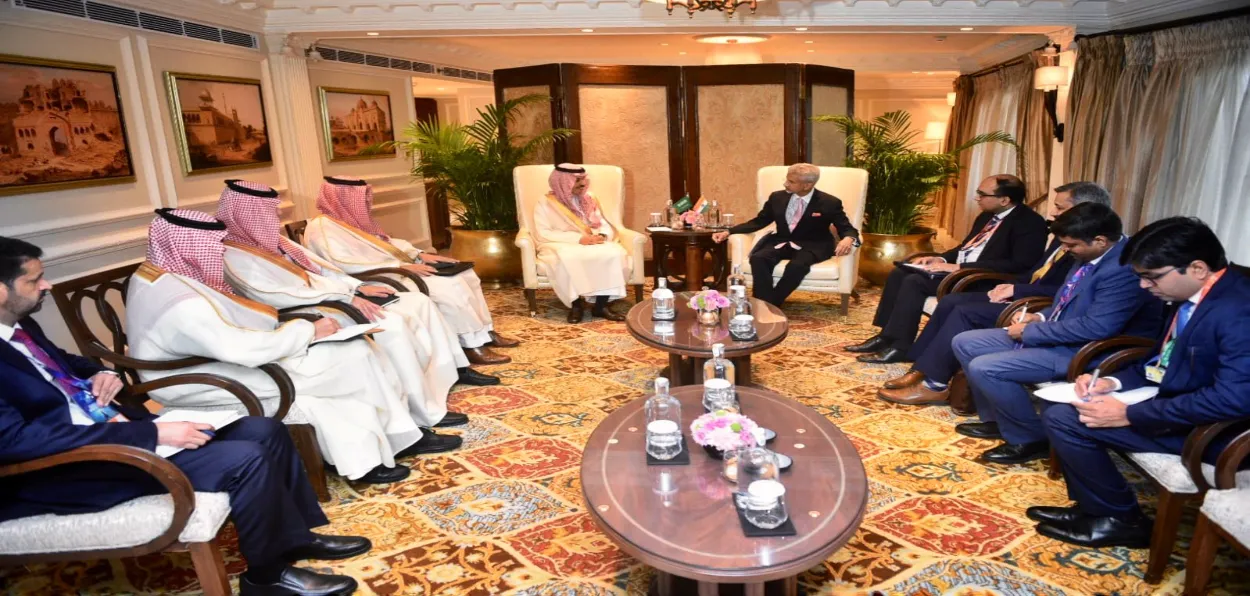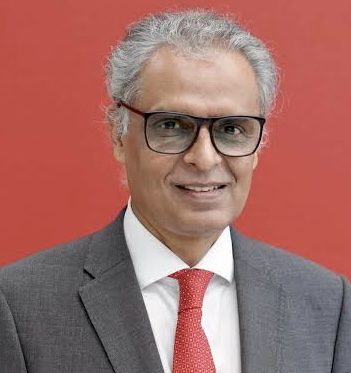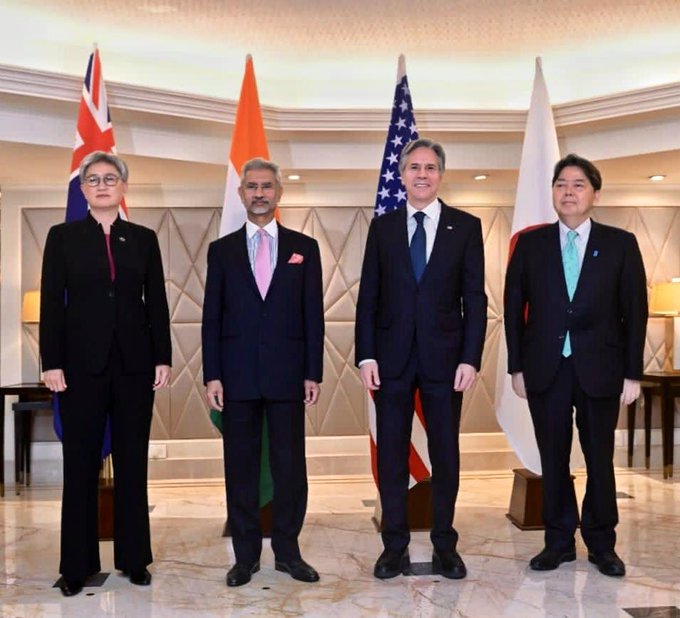
 Syed Akbaruddin
Syed Akbaruddin
The year 2023 promises a transformation of Indian diplomacy, as the country takes on the mantle of the G 20 presidency. There will be a heightened focus on economic and social issues, unlike any seen in our post-independence history. In the past, such subjects were part of an umbrella of Indian foreign policy; but were not the primary focus of diplomatic engagements. They were niche aspects of bilateral relationships or relegated to sporadic multilateral meetings.
This year that is set to change.
Actively seeking the views of those without a voice in the G-20 fora is a reflection of India’s willingness to be a bridge between the developed and developing world.
India's G-20 presidency is the catalyst for the shift. More than 200 meetings are to be held across the country on various topics including economic development, environment, energy, finance, food, health, infrastructure, sustainable growth, and technology. India’s foreign policy agenda is set to broaden considerably.
This is not India's first foray into the G-20 or with tackling such matters. The difference is the intensity of engagement due to India's role in the G-20 this year. As the G-20 does not have a Secretariat, the responsibilities of the rotational presidency include functioning as a de facto think tank, pacesetter, troubleshooter, and institutional memory, on all matters on the agenda.
The G-20 is the 'premier forum for international economic cooperation' in a rapidly evolving world. Nothing can be counted as off the agenda of a group with around 80% of the Gross World Product (GWP), 75% of world trade, two-thirds of the world's population, and 60% of the land area. With this, India's multilateral responsibilities are set to grow manifold.
India has reached out to more than 120 countries of the Global South, which are not at the G-20 negotiating table but have a crucial stake in the common objectives of sustainable global growth. For India, a leading member of the G-77 and the NAM, expressing solidarity with developing countries is not new. However, actively seeking the views of those without a voice in the G-20 fora is a reflection of India’s willingness to be a bridge between the developed and developing world.
 Showcasing Indian culture during the G-20 Foreign Ministers' meet in New Delhi
Showcasing Indian culture during the G-20 Foreign Ministers' meet in New Delhi
The breadth of engagement on such a broad canvas necessitates a whole-of-government approach to cross-boundary issues, which were previously considered peripheral to several parts of the Indian government. Foreign policy matters will not be distant from the thinking of those whose primary objectives lie elsewhere. It augurs well that a range of Indian decision-makers will better understand the thought processes of other key countries and the practices they follow. The public diplomacy campaign accompanying G-20 events will help build a more informed public opinion on foreign policy issues.
For India, all this is important. As the Reserve Bank of India's report on the state of the Indian economy predicts, "2023 may well be the opening ajar of a window in which India's time on the world stage is arriving." As a US $3.7 trillion economy, India will remain the fifth largest economy, maintaining its lead over the UK in 2023. By International Monetary Fund calculations, this will propel India into fourth place in 2025 and third place in 2027 as a US$ 5.4 trillion economy. Further, as the RBI put it, in April 2023, India's population of 1.4 billion will be the largest in the world. A sixth of the increase of the world's population of working age (15-64) people between 2023 and 2050 will be Indians. Coupled with a median age of 28, this is India's chance to seize the demographic dividend and herald its emergence as an economic powerhouse of the future.
The G-20 presidency provides India an opportunity to begin the transition from playing a 'balancing' role in large multilateral settings to stepping ahead on the long road of becoming a 'leading' power through more substantive engagement in crucial but limited membership platforms.
Economic, commercial, financial, and environmental jurisdictions are intertwined with elements that impact national security. The happenings during the pandemic, the growing rivalry to host semiconductor industries, the race to incentivize the shoring of green technologies, and the friend shoring of supply chains to ensure their resilience are all examples of this.

QUAD Foreign Ministers during the G-20 meeting in new Delhi
Muscular forces like trade and industrial and environmental policies have the potential to impact the prosperity of national economies and bring about significant geopolitical implications. The concept of Security is no longer isolated, no more a distinct silo. The weaponization of various aspects of life has become the norm. This year India too will adopt a more calibrated approach to its global engagement, taking into account the rapidly changing international landscape.
The end of a successful term as a non-permanent member of the UN Security Council in December 2022, is an appropriate time for India to pivot from a narrow focus on matters of international peace and security in multilateral fora to a more broad-based approach towards national security. Ignoring the array of new and emerging issues vital for our sustainable development that have yet to find an international platform for serious consideration, is not an option.
"We are situated in a turbulent region. Three neighbours will conduct difficult elections with outcomes uncertain. Three neighbours are engaged with the IMF to tide over financial distress. Afghanistan is an ungoverned space that can sprout unsavory elements. Myanmar is beset with domestic turmoil.”
With the quest for a more significant role also comes greater responsibility. India has skillfully pursued its national interests as a middle power, expertly navigating the uncertain geopolitics of the current international order. The challenge is to meaningfully shape the emerging new order. Usually, middle powers have limited abilities to partake in a significant way in such endeavours. Given the difficulties that inclusive multilateral fora such as the UN are facing, smaller groupings are helpful in germinating ideas that can be pollinated and partnerships that can be expanded in global fora once they are mature for broader consideration. The G-20 presidency provides India an opportunity to begin the transition from playing a 'balancing' role in large multilateral settings to stepping ahead on the long road of becoming a 'leading' power through more substantive engagement in crucial but limited membership platforms.
However, aligning national interests with the greater global good is never an easy task. Diplomacy always involves a balancing act of 'give and take’, more challenging compromises lie ahead.
The 'Goldilocks' option of pleasing all constituencies will have to give way to a more realistic approach. Risk-taking and some errors are inevitable in any surge forward. That we have a strong leadership under Prime Minister Modi provides a degree of comfort.
Amidst all this multilateral focus, the hardy perennial concerns of Indian diplomacy may seem to take a back seat. They have the potential to disrupt the best-made plans. We are situated in a turbulent region. Three neighbours will conduct difficult elections with outcomes uncertain. Three neighbours are engaged with the IMF to tide over financial distress. Afghanistan is an ungoverned space that can sprout unsavory elements. Myanmar is beset with domestic turmoil. China's border forays can never be discounted. Hence, 'Neighbourhood First' will need to remain a watchword even as the globe beckons.
ALSO READ: Pakistan is a loser by not attending Moscow Conference on Afghanistan
Ours is a neighborhood with a scarcity of serious platforms to address transboundary issues. The pathways to be adopted are different from those at the G-20 or other multilateral settings. In 2023, how Indian diplomacy balances the pursuit of these diverse regional and global objectives, bilaterally and multilaterally, will set the template for India's foreign policy postures for years to come.
Syed Akbarrudin is Dean of the Kautilya School of Public Policy, Hyderabad. He was formely India’s Ambassador to the United Nations.
(This article is written for NatStrat and is republished with permission)
